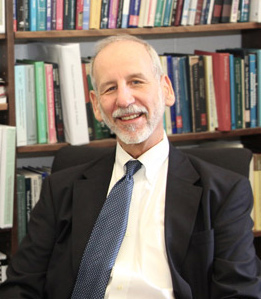
In a recent issue of the Annals of Surgery, epidemiologists from the University of Pittsburgh published an analysis that could help guide clinicians and policymakers in counseling bariatric surgery patients to improve their quality of life for many years to come. McGowan Institute for Regenerative Medicine affiliated faculty member Steven Belle, PhD, MScHyg, professor in the Department of Epidemiology and a co-director in the Epidemiology Data Center in the Graduate School of Public Health at the University of Pittsburgh, is a co-author on the study.
First author Wendy King, PhD, associate professor of epidemiology at Pitt’s Graduate School of Public Health, found that higher physical activity levels after bariatric surgery lessen depressive symptoms and improve mental and physical quality of life, irrespective of weight loss.
Every year, tens of thousands of Americans who struggle with obesity undergo gastric bypass surgery to manage their body weight and comorbidities, such as diabetes. Yet, the Pitt scientists found, while most patients are at least somewhat satisfied with their surgery long-term, satisfaction decreased from 85% to 77% three to seven years post-surgery. Most patients also continue to lead sedentary lives, which contributes to weight regain and negatively affects their mental well-being.
“Our data support why it’s important to counsel patients regarding their physical activity behaviors,” said Dr. King. “Although patients in general are not meeting physical activity recommendations post-surgery, we found a dose-response relationship – the more active patients were, the better improvement they had in depressive symptoms and health-related quality of life. Every bit matters.”
Dr. King found that improvements in mental and physical health-related quality of life differed by physical activity level. By analyzing objective measures collected from wearable activity monitors — step count, amount of time spent sedentary and amount of time spent doing moderate-to-vigorous activity — she found that higher levels of physical activity related to improvements independent of weight loss. Dr. King showed that higher activity level predicted better weight loss and less weight regain – but that study didn’t look at quality-of-life measures.
Even after the surgery, an average bariatric surgery patient leads a significantly more sedentary lifestyle than recommended by physicians.
Dr. King says this may explain why the magnitude of associations between physical activity level and improvement in health-related quality of life and depressive symptoms in their cohort was small. Still, the findings provide support for expanding measures that increase physical activity in bariatric surgery patients to influence mental and physical health outcomes.
“Most insurance providers include coverage for dietary counseling but don’t reimburse expenses for hiring a health coach or getting a gym membership,” said Dr. King. “There needs to be more systemic support to help patients increase their activity level and maintain an active lifestyle post-surgery.”
The study analyzed data collected from 1,700 adults who underwent Roux-en-Y gastric bypass surgery between March 2006 and April 2009 and were followed for up to seven years.
Read more…
UPMC/University of Pittsburgh Schools of the Health Sciences News Release
Abstract (Associations between physical activity and changes in depressive symptoms and health-related quality of life across 7 years following roux-en-y gastric bypass surgery–a multicenter prospective cohort study. King, Wendy C. PhD; Hinerman, Amanda S. MPH; White, Gretchen E. PhD; Courcoulas, Anita P. MD; Belle, Steven H. PhD. Annals of Surgery, November 24, 2020.)
